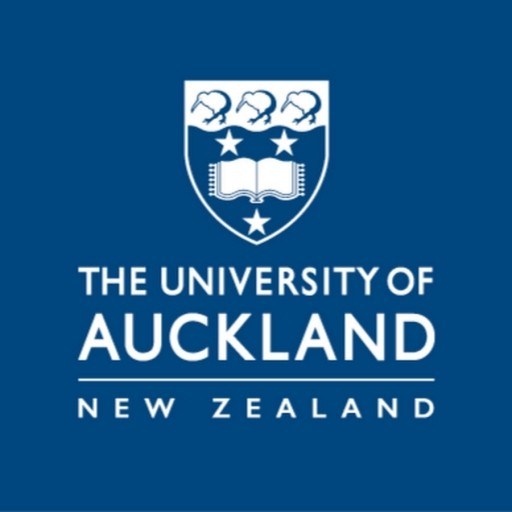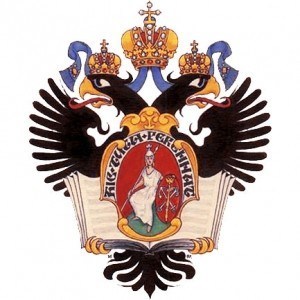Photos of university
The Bachelor of Maori and Indigenous Studies at the University of Canterbury offers students a comprehensive and immersive introduction to the rich cultural, historical, social, and political landscapes of Māori people and other Indigenous communities. This innovative programme is designed to foster a deep understanding of Indigenous worldviews, traditions, and contemporary issues, providing students with the skills and knowledge to engage effectively within Indigenous contexts both within Aotearoa New Zealand and globally. Throughout the duration of the degree, students explore a diverse range of topics including Māori language and tikanga (customs), Māori artistry and practices, Indigenous governance, legal rights, and the ongoing cultural revitalisation efforts. The curriculum emphasizes critical thinking, cultural competence, and ethical engagement, preparing graduates for careers in a variety of fields such as education, government, community development, research, and advocacy. In addition to core Māori content, students may also study related Indigenous perspectives from around the world, fostering a broader understanding of Indigenous issues and solidarity. The programme encourages active participation through field projects, internships, and community-based learning, ensuring that students graduate with practical experience and strong cultural foundations. With experienced faculty members who are experts in their respective fields, students receive personalised mentorship and support throughout their studies. The Bachelor of Maori and Indigenous Studies aims to nurture leaders who can contribute positively to advancing Indigenous rights, preserving cultural heritage, and promoting social justice. Graduates of this programme are equipped to work in roles that require cultural awareness, analytical skills, and a commitment to Indigenous wellbeing. The University of Canterbury is dedicated to fostering an inclusive learning environment that respects and celebrates Indigenous identities and knowledge systems, making this degree an ideal choice for students passionate about Indigenous issues and committed to making a meaningful difference in society.
Qualification structure and duration
Students will normally complete at least four courses before enrolling for a Research Dissertation.
Duration
Two to three years full-time or up to six years part-time.
Subjects and courses
The course of study for the MMaor degree comprises one of the following:
- MAOR401 Te Matakahi: Indigenous Critical Theory
- MAOR402 Nga Take: Nga Tohetohe
- MAOR403 Korero Nehera: Ancient History of the Māori
and either:
- four other courses chosen from MAOR401–480 and one Major Research Dissertation (MAOR590 Rangahau - Major Research Dissertation), or
- five other courses chosen from MAOR402–480 and one Minor Research Dissertation (MAOR591 Rangahau - Minor Research Dissertation), or
- five other courses chosen from MAOR402–480 and two Research Papers (MAOR592 Rangahau - Research Paper and MAOR593 Rangahau - Research Paper).
Normally the minimum requirement is a three-year bachelor’s degree from a New Zealand university, or a qualification or combination of qualifications considered to be equivalent.
If you gained your qualifications overseas, these will need to be assessed to make sure they are of an equivalent standard.
Qualification specific requirements
Candidates wishing to enrol in the MMaor must have either:
- qualified for a bachelor's degree with a major in Te Reo Māori or Māori and Indigenous Studies or a related subject, with at least a B+ average in 60 points at 300-level; or
- qualified for a bachelor's degree and have completed a Graduate Diploma in Arts in either Te Reo Māori or Māori and Indigenous Studies with at least a B+ average in 60 points at 300-level; or
- qualified for a bachelor's degree and demonstrated a substantial level of professional experience in Te Reo Māori or Māori and Indigenous Studies
- completed the four courses for the Postgraduate Diploma in Māori and Indigenous Studies with Merit or Distinction.
The Bachelor of Maori and Indigenous Studies at the University of Canterbury offers a range of financing options to support students throughout their academic journey. The university provides domestic students with various scholarships, grants, and financial aid programs designed to assist with tuition fees, living expenses, and other study-related costs. Domestic students may be eligible for scholarships such as the Māori Entry Scholarship, which recognizes academic achievement and commitment to Māori studies, and the Te Rangi Hiroa Māori Scholarships, aimed at supporting students engaged in Indigenous research and community involvement. Additionally, students can access the New Zealand Government's Student Loan Scheme, which provides low-interest loans for tuition fees and living costs, subject to eligibility criteria.
International students enrolled in the program are also supported through bursaries and scholarships tailored for international Māori and Indigenous studies students. These may include the International Student Scholarships, which help offset tuition fees, and other funding opportunities based on academic merit or financial need. The university encourages students to explore external funding sources, including government scholarships, private foundations, and Māori organizations that offer financial support to students pursuing Māori and Indigenous studies.
Part-time work opportunities are available to both domestic and international students through on-campus roles, internships, and community-based projects associated with the university. These roles provide students with the opportunity to gain practical experience while contributing to their financial stability. The university’s financial aid office offers comprehensive guidance on applying for scholarships and managing study expenses, ensuring students are well-informed about the support available.
Furthermore, the university frequently reviews and updates its funding schemes to accommodate the economic needs of students, and it actively promotes applications for emerging grant programs aimed at enhancing Indigenous knowledge and leadership. Overall, the University of Canterbury is committed to ensuring that financial barriers do not hinder students from pursuing their studies in Maori and Indigenous Studies, and it provides an array of assistance options to facilitate access and success in this field.
The Bachelor of Arts in Māori and Indigenous Studies at the University of Canterbury is a comprehensive programme designed to provide students with an in-depth understanding of Māori culture, history, language, and contemporary issues. This interdisciplinary degree combines elements of anthropology, history, politics, and language studies to offer a holistic perspective on Māori and Indigenous peoples' experiences and contributions within Aotearoa New Zealand and globally. Students enrolled in this programme explore topics such as traditional Māori customs, tikanga, te reo Māori (the Māori language), colonization impacts, Treaty of Waitangi issues, and Indigenous sovereignty. The curriculum aims to foster cultural literacy and critical thinking skills necessary for engagement with Māori and Indigenous communities, government agencies, and non-governmental organizations. The programme emphasizes experiential learning, including community projects, language immersion, and field trips that deepen cultural understanding. It prepares graduates for careers in education, public policy, social services, cultural heritage management, and advocacy. The programme also encourages research on contemporary Māori issues, providing students with opportunities to develop independent research projects under academic supervision. Furthermore, the university supports Māori cultural activities and language revitalization initiatives, integrating these elements into the academic experience. Graduates of the Māori and Indigenous Studies programme are equipped to contribute meaningfully to conversations around Indigenous rights, reconciliation, and cultural preservation both within New Zealand and internationally. The programme's flexible structure allows students to tailor their studies to their interests, combining coursework with internships or community engagement. With a strong focus on Indigenous perspectives and perspectives, the degree aims to produce culturally competent graduates who can operate professionally within diverse settings, respecting Māori tikanga and tikanga Māori, and fostering respectful relationships with Indigenous communities. The programme is suitable for those passionate about social justice, cultural heritage, or pursuing further academic research in Indigenous studies.









